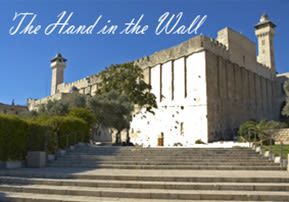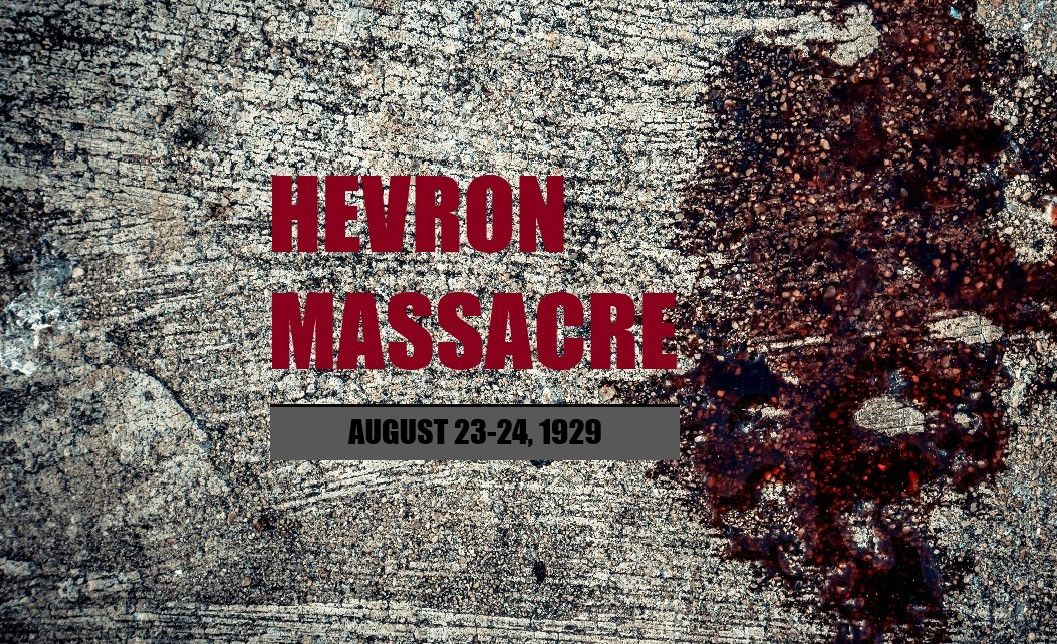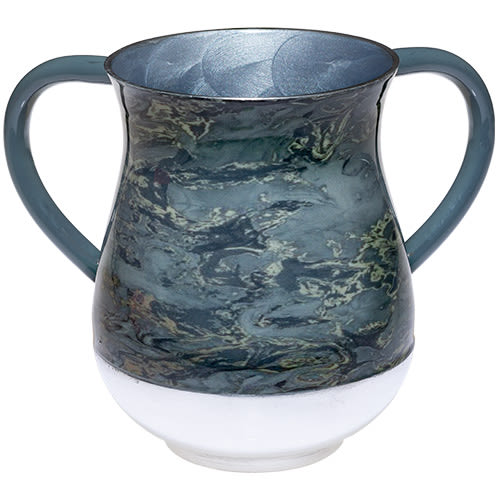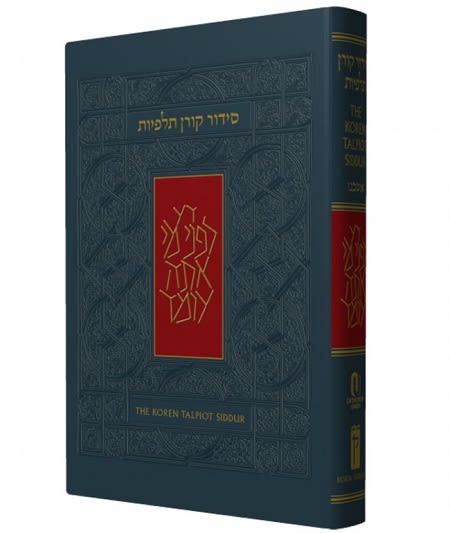
The Hand in the Wall, Part 5
The Governor’s son thrust his hand in the wall of the Machpelah cave, searching for incriminating evidence against the Jew that was “illegally” praying there. And then…

Hebron Series, part 5
The following are two more true stories, tastes of the rich tradition of Hevron, one of the four holy cities in Judaism (Jerusalem, Tzfat, and Tiberias are the other three).
In the early days of Arab control over Hebron, the Arabs did not allow the Jews to pray in the vicinity of the Cave of Machpelah. Through the years this prohibition became flexible but not so much as to allow the Jews to pray inside the great Mosque that the Arabs had built over the Caves themselves. During the most severe period of Arab rule, the Jews were not allowed to come to any street close to the cave or stop and pray next to its outer wall.
Nevertheless, one day a Jew stopped near the wall of the Cave of Machpelah and, overwhelmed with yearning, he reached into his pocket and drew out his small prayer book. He began to pray. The Governor’s son happened to be walking in that direction and saw him. The frightened Jew placed his prayer book in one of the walls' crevices. The Governor’s son was full of rebuke and chased the Jew from the spot. He then put his hand in the hole to retrieve the book for evidence against this Jew who had dared to overstep his place. But, somehow the Governor’s son could not remove his hand from the wall’s opening and it remained lodged between the stones.
Superstition got the better of him and he began to shout. Soon his father, accompanied by a large crowd, came rushing up to help, but no one managed to help him get his hand out. At his wits’ end by that time, the governor called the city Rabbi. The Rabbi took one look and understood that the boy suffered from a fractured bone. With care, he slowly took the boy’s hand out and sent him home. The boy became severely ill due to the condition of his hand and even more so, because of his superstition. He thought that one of those buried there had grabbed hold of his hand and didn’t let go until the Rabbi had rendered assistance.
The Arab doctor who was called upon to restore the boy’s health could not help and the boy’s condition worsened. Soon the Governor grew alarmed over the fate of his son. In his desperation, the Governor summoned the Rabbi again to ask him to pray for his son’s health. The Rabbi indeed prayed for the boy and he recovered.
From that day on, the Governor granted permission to all the Jews to pray at the outer wall. However, still no one was ever allowed to enter the cave itself. Only once a day an Arab worker was lowered in a case, never to touch the floor, to light the candles.
If a person attempted to enter he would be beaten. In earlier times, he would have been burnt.
The Wicked Guard
A very rich Jewish man, Isaac Demayu, came to see the tombs of the righteous people in Israel. In his travels he also wanted to see the inside of the Cave of Machpelah in Hebron.
One day came he came to Hebron for this purpose. As he approached the Cave of Machpelah, a large guard stood to bar his way. He did not let him in. Isaac offered him fifty golden coins and he still refused. When he raised his offer to one hundred golden coins the guard could not maintain his stand and agreed to allow Isaac inside. However, he insisted on an immediate payment. The rich man knew the way of the world and said: ”Only when I leave.” The guard refused. Finally a compromise was struck: the guard would receive half the sum before the visit and the other half after the visit. Isaac handed the guard fifty coins and entered the gate.
As soon as Isaac entered, the guard locked the gate closed and ran to one of the ministers of the governor with the money and told him the story. “He has much money we can share,” said the guard. Upon hearing this, the governor’s minister ran to the Cave. Suddenly, a fright came over Isaac who suspected that the guard closed the gate not only to lock him up, but was also planning treachery against him. Isaac began to cry bitterly and pray. He cried out to G-d that he did not enter the cave for his pleasure but to see G-d’s wonders and to tell people of His greatness. Just then, the main door opened and Isaac left safely. Outside the Cave, he mounted a horse and rode to Jerusalem.
When the Governor’s minister came to the Cave and did not find the Jew, the guard could not explain what had taken place. The Minister insisted: ”Where is the Jew? You are obviously guilty and will pay with your life if you had let him in. If you did not let anyone in, you must have stolen the money and you are telling me these tales because you are afraid to say the truth.” Soon, the minister ordered execution of the guard.
(Breslev Israel expresses its deep appreciation to Noam Arnon and to the Jewish Community of Hebron, http://www.hebron.com/)












Tell us what you think!
Thank you for your comment!
It will be published after approval by the Editor.